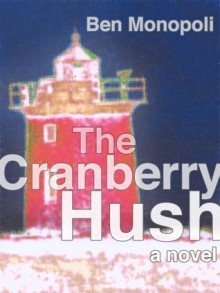
This story is one among many, many contemporary first-person m-m novels. Vince is pining for Giff. Giff is Pining for the ‘true one’. Zane is pining for Vince. Vince is a whiny, self-indulgent obsessive lunatic. It’s all so predictable, if it was teenagers, but with adult characters it’s almost absurd. Just shut the fuck up you’all.
With flashbacks we learn, once Griff does a snowy, and at the end seemly undeveloped surprised visit to Griff—a trip no less from Boston to the Cape even though their relationship is, well nothing much and he’s never visited before and really he had to look Vince up—all about their silly trials and tribulations.
Vince spotted Giff across his first college class, and so marks the beginning of obsession and the needless invasion of privacy and boundaries. His love is startlingly in its haste, and his stalkerness quickly develops into something that borderlines on clinical.
We learn that Giff and Vince had only really fostered a year-long relationship, until Vince, all inappropriate with one instance of non-consensual sexual touch, finally figures out he really has crossed boundaries. The two part abruptly, and Griff can’t really figure out why and what contributed to the ending of a seemingly functioning and loving friendship. It was really only one year, and while Griff really did appear to have affection for Vince, weighed against Vince’s feelings it just seemed like a typical roommate situation. Griff’s relationship with Vince had elements of relationships with roommates I could relate to, but nothing beyond a strong friendship. To counter a lack of emotional content, the story should have expanded their cohabitation to two years, rather than one. Given the final, abrupt reason for severing the relationship, I as a reader NEEDED more, maybe a few mutual instances of sexual exploration, or some sort of deeper reciprocation of affection beyond the common friendship.
Intermingled in the present is Zane, who is an all-together loving, charming, and somewhat broken but in a very honest way. He is in love with Vince, and Vince, even though he can’t dispatch his feelings for Griff, adores Zane. However, because Vince has yet to get it through his head that Giff doesn’t love him, that he will never have Giff sexually, he continues to ignore his feelings for Zane and really shatters the poor fellows heart. Zane character, motivation, and drives were really the only successful part of this book.
Vince and Giff end up on some sort of self-discovery, but precarious, uneven writing and an unrealized plot plunder the novel’s intended meaning. It seems that the author was trying to examine the very nature of relationships, and in particular that silly trendy thing called a ‘bromance’. The idea of being at home with another individual and figuring out and defining this particular concept, and finally realizing it. Unfortunately this was only really laid bare at the very end, and without really understanding how obsessive Vince further integrated this new knowledge I was left with a feeling of emptiness. He spent so much time infatuated with this man that I expected, no required some exploration in the ways this affected him. An epilogue, like usual, even when five months after the ending of the book, was neither effective nor successful in answering important questions.
The novel was ultimately underwhelming and underdeveloped. It left me as a reader neither relating to the character’s personality or motivations.
The past and present were combined in a way that was confusing and troublesome. The writing style itself was simplistic, but this too was unfocused. Sentences seemed to meander. Thoughts weren’t clarified. It felt, coupled with the use of past and present, very cumbersome.


 Log in with Facebook
Log in with Facebook 









